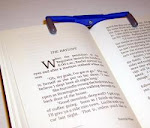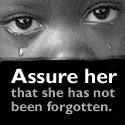Human resiliency is amazing. ‘Resurrection in May ,’ the latest novel by Lisa Samson, brings this human characteristic – not to mention God’s grace and mercy – to the forefront.
,’ the latest novel by Lisa Samson, brings this human characteristic – not to mention God’s grace and mercy – to the forefront.
Here is the synopsis of this book:
A Strange and Wonderful Friendship Ignites the Fire of Love in May Seymour’s Life.
Lovely and winsome, May Seymour graduated from college with the world at her feet…and no idea what to do with it. A spontaneous missions trip to Africa brought a great surprise – love – and a strong sense of purpose. But in loving others there, she encountered a severe tragedy that left her deeply wounded.
She comes to heal at the farm of Claudius Borne – a sweet, kind old man who understands plants and animals far better than people. And his farm becomes May’s home.
There on the farm, May renews a friendship with an old college flame named Eli whose path has taken unexpected turns too. As May tries to convince Eli to grab hold of life once again, he begins to pull May from her sheltered existence. Like old Claudius’s farm in Spring, May begins to blossom back into life. But no resurrection ever comes without sacrifice – and this sacrifice will forever transform May.
Here is the biography of this wonderful author:
Lisa Samson, the Christy-award winning author of twenty-six books including Christianity Today’s 2008 Novel of the Year, Quaker Summer , and Justice in the Burbs
, and Justice in the Burbs , which she co-wrote with her husband, Will, a professor of Sociology. When not at home in Kentucky with her three children, one cat, and six chickens, she speaks around the country about writing and social justice, encouraging the people of God to “do justice, love mercy, and walk humbly with God.” She loves nothing better than sitting around her kitchen table, talking with family and friends, old and new.
, which she co-wrote with her husband, Will, a professor of Sociology. When not at home in Kentucky with her three children, one cat, and six chickens, she speaks around the country about writing and social justice, encouraging the people of God to “do justice, love mercy, and walk humbly with God.” She loves nothing better than sitting around her kitchen table, talking with family and friends, old and new.
She is also the proprietor of the recently opened Cuppa: A Tea Café in Lexington, Kentucky.
This book starts with May Seymour, fresh from graduating from the University of Kentucky with a degree in Journalism, with the typical co-ed mindset and enthusiasm. Her dream was to be the editor-in-chief of Vogue Magazine, and drove a Mazda Miata convertible, her blonde hair blowing in the breeze. The year is 1993, and her next move in life is to go on a mission trip to Rwanda.
Her life changed forever when she was picked up by Claudius Borne after a drunken college party. She was crawling along on a country road, and an angel in human form picked her up and brought her to his home. Here is how Claudius sees himself and the world around him:
Since Claudius was a farmer, everything ended up looking something like a vegetable in his mind. His mother had favored paisley prints, and he always thought of them as summer squashes. Whenever he saw a picture of a flying saucer – pattypan squash. Beads on necklaces, depending on size, were either peas or cherry tomatoes.
He’s always lived right around this spot of Kentucky. And it was not that his owns fields and woods weren’t enough anymore, but this vista did something for him he couldn’t even voice – he just knew he enjoyed it, the freewheeling breeze, the small pebbles lining the precarious sandstone path with no guardrails, even the tourists who liked to sit on the edge and dangle their feet into that same expanse of nothing but air. (p. 3)
Here is May explaining to Claudius that she will be heading to Rwanda:
“I’m leaving for a trip to Rwanda soon. Working at a medical mission. Probably an everything mission.”
“For how long?”
“A couple of months.”
“So you’ll be going with a church group or something?”
“Just me. Believe me, I’ll just be helping out. I’m no missionary.”
The way she said it sounded like she thought being a missionary was a bad thing. But Jesus said to go to the lost, didn’t he?
“Then why are you going?”
“Not to force my beliefs on someone, that’s for sure.”
Oh. “Then what for?”
“Father Isaac needs help in the village. I like kids, and I don’t mind pitching in and doing what needs doing.”
“I’m sure you’ll have a good time.” (p. 17)
A close relationship developed between May and Claudius, and he offered his home to her until she was ready to leave for Rwanda. She readily accepted.
During the time that May was in Rwanda, she grew to love the people who quickly became her friends. She happened to be in Rwanda at the time of the one of the worst genocide - between the Hutus and the Tutsis. It was a very dangerous situation, and she was encouraged to return to the United States:
“You should leave soon,” Father Isaac said almost every day, and every day May refused. What did she really have to go home to? She’d been rejected for the internship. Perhaps she’d get a job at the Lexington Herald-Leader. Anything seemed better than that.
The suddenly the president of Rwanda, a Hutu, was killed. It was all the excuse needed for blood to flow.
The Interahamwe, those calling for the decimation of the Tutsi, began to swarm through the land, locusts eating all in their paths, crunching bones, devouring flesh.
Oh, the prayers she heard that day word got to their village that the Hutu were on the rampage. After months of indoctrination, neighbor was killing neighbor in other towns and villages, the cities too. She prayed prayers of thankfulness they were so remote. Perhaps they’d escape this. (p. 51)
Unfortunately, she and her new family did not escape the horrors. May lived through unbelievable atrocities. She became philosophical about her situation after months of inexplicable survival:
She began to laugh, hugging her sides, as she leaned against the well and slid down, her bottom behind her heels. Wasn’t life a trip? Try to do something good and end up worse off than when you were partying and ignoring God at all costs?—Yep, kill me now. You want me to pray, God? How about that? Let me die.
Once again her unspoken hopes fell on deaf ears.
The Jeep came into view, and she saw that the driver and his companion wore the blue helmets of UN troops. She was safe. More or less. (p. 69)
Her parents and Claudius decided the best place for May to rest, recuperate and heal was to return to Bourne’s Last Chance, the farm.
May’s life at the farm was completely different from her life pre-Rwanda. Here Claudius reflects on the changes, and how it affected both of their world views:
May was learning to think differently, self-sufficiently. And it made Claudius feel good, the way she appreciated what was grown in the earth around her and how hard she worked to bring it all forth. He had taken God’s natural goodness for granted, he saw. Not in a way that wasn’t thankful, but he’d forgotten the miracle of life in general. When you thought about the dark universe with splotches of heat and light, this green and blue jewel on which he grew, and food grew, was indeed miraculous! He’d even taken himself for granted, his work, that he knew instinctively when to put a seed in the ground. And it wasn’t the same day every year either. He just felt in his bones when it was time. (p. 87)
May began to allow Claudius to get her off the farm and back into life. She accompanied him to the Farmer’s Market in Lexington, where he was known as the Tomato Man, and she was known for her lovely bouquets of flowers. May had a setback when she ran across an acquaintance of her from the University of Kentucky. Here’s the exchange between May and Claudius:
---Oh, sweet Lord Jesus! We were doing so good. Why’d that girl have to show up?
“And she was wearing Eau d’Hadrien, one of the most expensive perfumes in the world. Did you know that?”
“’Course I didn’t, May-May!”
She flinched. And he turned away. He could take almost anything but people feeling sorry for themselves.
His heart melted, and he turned back. “Honey, you have more to feel bad about that overpriced perfume only stupid people would waste their money on to begin with. Don’t pity yourself about the wrong things. You’ll never heal that way.”
---I’d better watch myself. I’m starting to give pretty good advice. (p. 136)
Time passed, and so did Claudius. He changed his will to allow May to stay on at the farm indefinitely, even though he willed his forty acres to his church. Fast forward eight years, and May is still on the farm. She has become a real country girl, a bit of a recluse. A friend of Claudius’s from childhood, Sister Ruth, became May’s new lifeline. Here is an exchange between the two ladies:
“We have to talk about something, May.”
Oh, boy. May took a sip of her coffee, hoping to hide behind the brim,
“Your hair.”
“No.”
“Look at it. It’s down past your bee-hind. And all that gray. And it isn’t a pretty gray either, honey. It’s that iron gray with yellow around the edges.”
“It’s easier that way.”
“’Course it is! It has no style. It’s ridiculous. No woman your age should wear a braid that long. I just think if you got back a little style you might---“
“Keep trying.” May stood up. “I think the quiche is heated up.” (p. 158)
May had a brief interlude while at the University with a football player, Eli, who happened to be from the town where Borne’s Last Chance was located, Beattyville. They reconnected for a week before she went to Rwanda. In the interim, he served honorably in the military, married and had a daughter, then returned home to a life of drugs and murder. May was conflicted about her what she thought about her old flame after his crimes:
Poor Eli?
She knew she should feel compassion. She knew the basic series of events that had led him from decorated vet to someone killing two people while committing a felony. She knew you couldn’t use up a person then cut him loose.
But May couldn’t forget his victims, either. And when she thought of Eli, she thought of them, a father and his eight-year-old daughter, and fear gripped her throat, strangling her with feelings, reminding her of events she was still desperately trying to forget. (p. 167)
May decided to start corresponding with Eli in prison. She also became friends with his mother, Sassy and his daughter, Callie. Here is an excerpt from one of May’s letters to Eli:
Okay, so I’ve spent more time with Callie and, oh, Eli! She’s a beautiful girl. So tall and with all that dark blonde hair! She got all the good parts of you. Ha!
She’s so kind too. She carried in the lasagna and asked if I’d like it in the refrigerator, then sat at the table and listened while we talked. She took out a sketchbook and created the most beautiful, whimsical flowers and curlicues with a pack of markers she took out of her purse. I’m getting her to design a business card! I know a good thing when I see one. (p. 281)
There is a lot of activity in the entire book, and especially at the end – and I don’t want to give away any spoilers – but suffice to say that the end was bitter yet sweet. I will leave you with this final passage:
May climbed to her feet and walked around to Lover’s Leap, where she sat against an outcropping of rock and watched the sun go down. She let the love of God wash over her, cleansing away every drop of blood, every scar, every fear and failing. At least for today.
She decided she’d let Jesus do the same thing tomorrow if she needed him to. And the next day. And the next after that. Until she awakened one morning to find that it was gone for good. (p. 306)
That is a great way to live one’s life!
This is the second book I have read by Lisa Samson; the first book is a non-fiction book called ‘Love Mercy: A Mother and Daughter’s Journey from the American Dream to the Kingdom of God ’ by Lisa and her daughter, Ty (you can read my review here). I knew from that book that I would want to read any book that Lisa releases – and I have to say ‘Resurrection in May
’ by Lisa and her daughter, Ty (you can read my review here). I knew from that book that I would want to read any book that Lisa releases – and I have to say ‘Resurrection in May ’ proved that to be true! Lisa’s books are always thought-provoking, beautifully written, and always place Jesus at the center. I am so appreciative for the books that the Lord has brought my way, and I know I will always be grateful when a book by Lisa Samson crosses my path!
’ proved that to be true! Lisa’s books are always thought-provoking, beautifully written, and always place Jesus at the center. I am so appreciative for the books that the Lord has brought my way, and I know I will always be grateful when a book by Lisa Samson crosses my path!
You can order this book here .
.
This book was published and provided by Thomas Nelson Publishers for review purposes.





























.jpg)







2 comments:
Thanks for this wonderful review, Andrea! Appreciate you!
Hi Lisa -
Thanks for stopping by! I love your work - always multi-layered and putting Christ first!
Blessings -
Andrea
Post a Comment